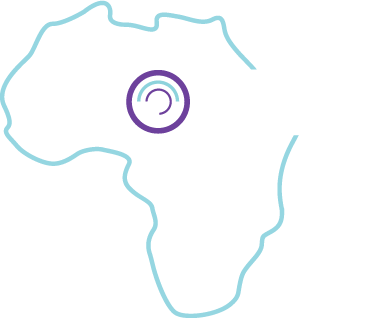Team France
 Dr Yusuke Shimakawa (Pasteur Institute, Paris, France)
Dr Yusuke Shimakawa (Pasteur Institute, Paris, France)
Dr Yusuke Shimakawa is a senior epidemiologist at the Intitut Pasteur, Paris, specialized in the viral hepatitis epidemiology in Africa. He obtained MD (Jikei University, Japan), Diploma in Tropical Medicine (Nagasaki University) and MSc and PhD in epidemiology (London School of Hygiene and Tropical Medicine). From 2011 until 2014, he spent 3 years at the MRC Gambia whilst undertaking his PhD project as a member of the PROLIFICA team. He studied the effect of modes of HBV transmission (perinatal vs. horizontal) on the subsequent natural history of chronic HBV infection in The Gambia. Since 2014, he has worked at the Emerging Disease Epidemiology Unit, Institut Pasteur, and remains attached to the PROLIFICA project as a co-investigator in charge of epidemiological aspects.
 Dr Isabelle Chemin (INSERM, France)
Dr Isabelle Chemin (INSERM, France)
Dr Isabelle Chemin is currently Research Director at INSERM U1052 (Dept Immuno-Viro) at the Center for Research on Cancer of Lyon. For several years her research focuses on HBV variants and hepatocellular carcinoma, including prognostic and predictive markers for HCC . She is a key partner of the PROLIFICA programme. She has contributed to the implementation of in-house HBV PCR in Gambia and Senegal and is in charge with IARC (Lyon, France ) of the Aflatoxin exposure measurement in the PROLIFICA participants.
 Dr Maimuna Mendy (IARC, France & MRC Gambia Unit, IARC (2010-2018)
Dr Maimuna Mendy (IARC, France & MRC Gambia Unit, IARC (2010-2018)
In addition to her background in molecular virology and infectious disease and cancer, Dr Mendy has over 25 years’ experience on hepatitis research including vaccine efficacy studies and HBV variants. Working at the Medical Research Council laboratories, Fajara,The Gambia (MRC@lshtm) and focusing on HBV molecular studies, assembling and managing longitudinal cohorts and biological resources and coordinating the biobank activities. Dr Maimuna Mendy worked for the International Agency for Research on Cancer (IARC) from 2010-17 as Head, Laboratory Services and Biobank Group and in 2017-18, as a Senior Visiting Scientist within the Education and Training Group and collaborating with the GHIS project based at MRC, Fajara. Dr Mendy designed the first PROLIFICA studies (WATCH and HC4 studies) with Prof. Mark Thursz and received the first funding (from the European Commission) to launch the PROLIFICA programme. She led the prolifica research activities at IARC, focusing on HBV variants, biomarkers and aflatoxin exposure studies and biobanking.
 Professor Stephane Chevaliez, (Hopital Henri-Mondor, France)
Professor Stephane Chevaliez, (Hopital Henri-Mondor, France)
Professor Chevaliez is an Associate Director of the French National Reference Center for Viral Hepatitis B, C and a member of the department of Virology, and of INSERM Unit U955 at the Henri Mondor University Hospital in Creteil, France. He focuses on teaching, diagnosis and research in hepatitis viruses. He earned his PharmD and a doctorate in molecular virology from the University of Paris XI and the Pasteur Institute of Paris, France. Professor Chevaliez has published a number of articles on the diagnosis and virological monitoring of chronic viral hepatitis, the mechanisms of action of ribavirin in chronic hepatitis C therapy and new drug developments. His research focuses on the molecular mechanisms underlying the success and failure (including viral resistance) of chronic hepatitis B and C therapies. He is a member of the concerted action 33 (AC33, HBV and HCV resistance to antiviral drugs) of the French National Agency for AIDS and Viral Hepatitis Research (ANRS).
 Damien Cohen (Cancer Research Centre of Lyon)
Damien Cohen (Cancer Research Centre of Lyon)
Damien was a project manager for the ANRS and a PhD candidate in virology at the Cancer Research Centre of Lyon (CRCL). He worked for several years on the PROLIFICA project as part of his PhD thesis. He was interested in measuring risk factors associated with the development and progression of liver disease, such as viral variants and aflatoxin B1 (AFB1) exposure. His missions were tighly intertwined with the activities of the International Agency for Research on Cancer (IARC), in particular regarding the screen for AFB1 exposure.
